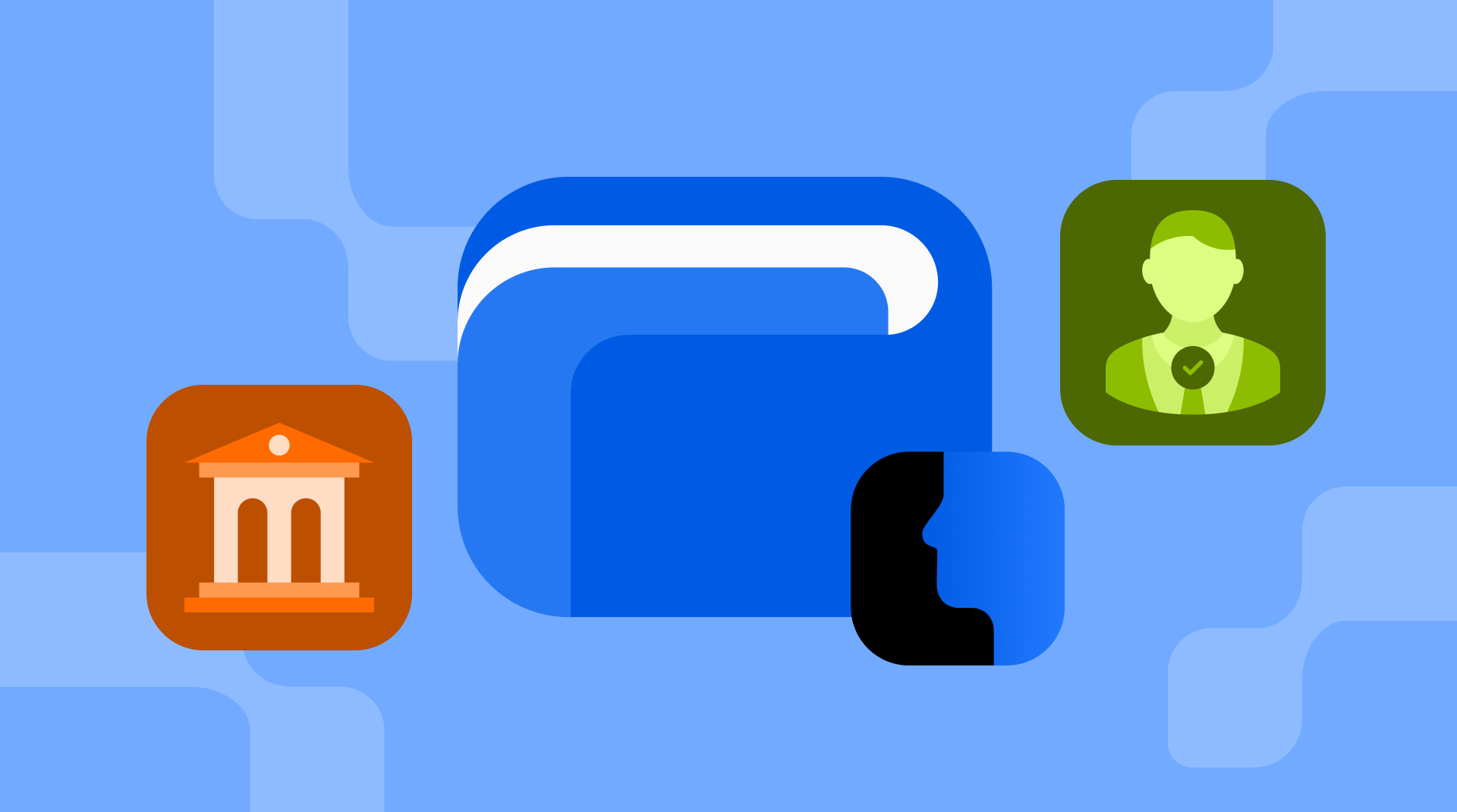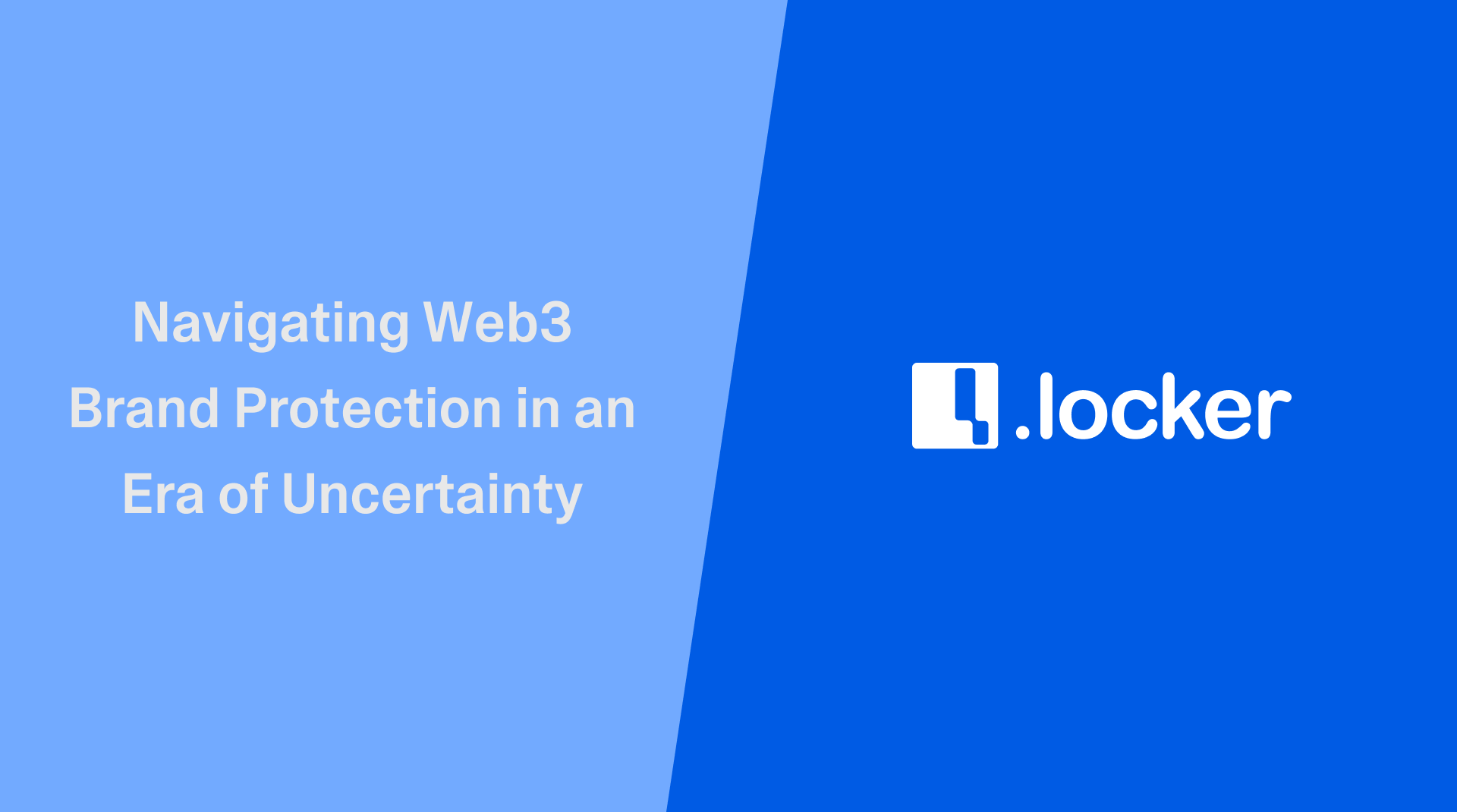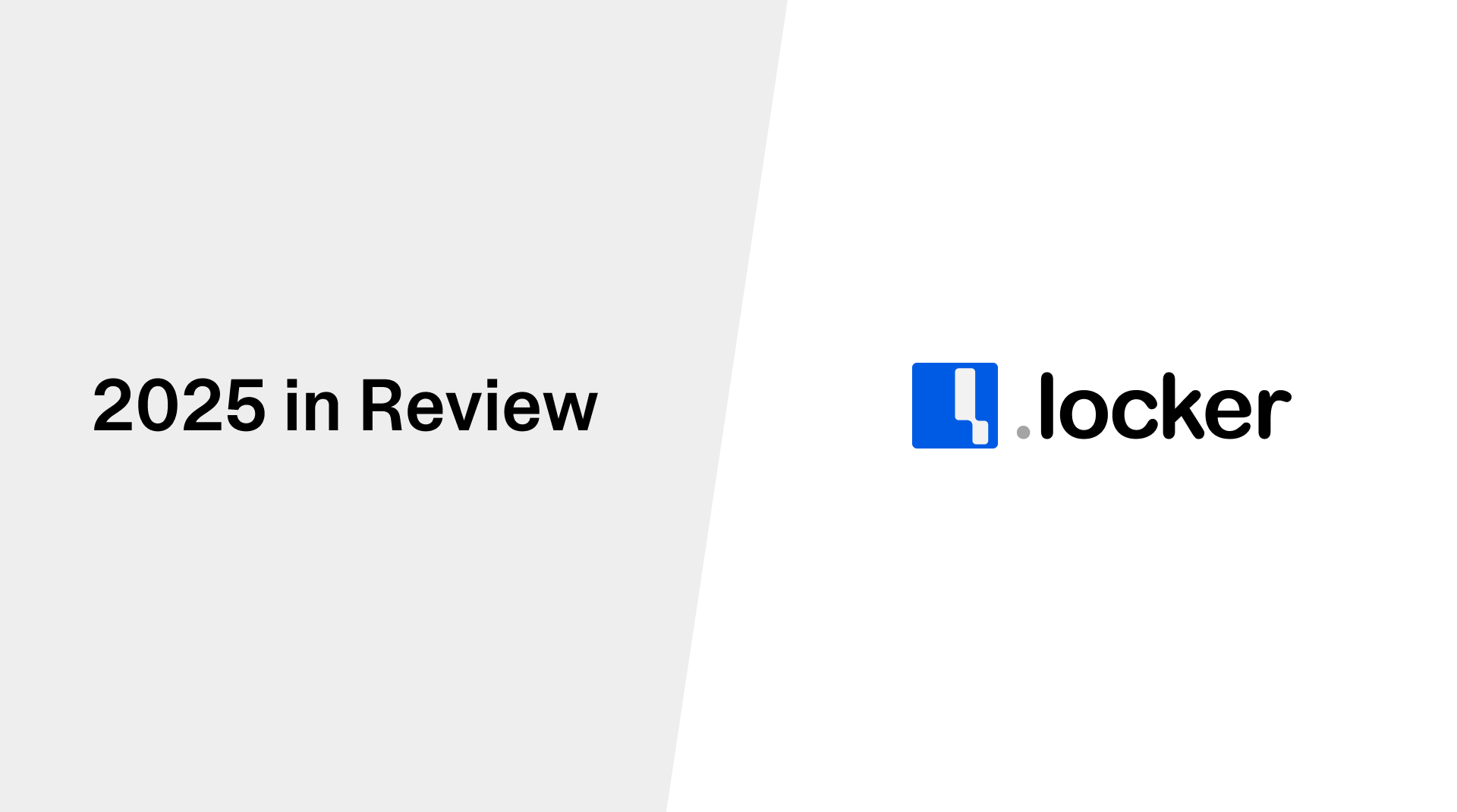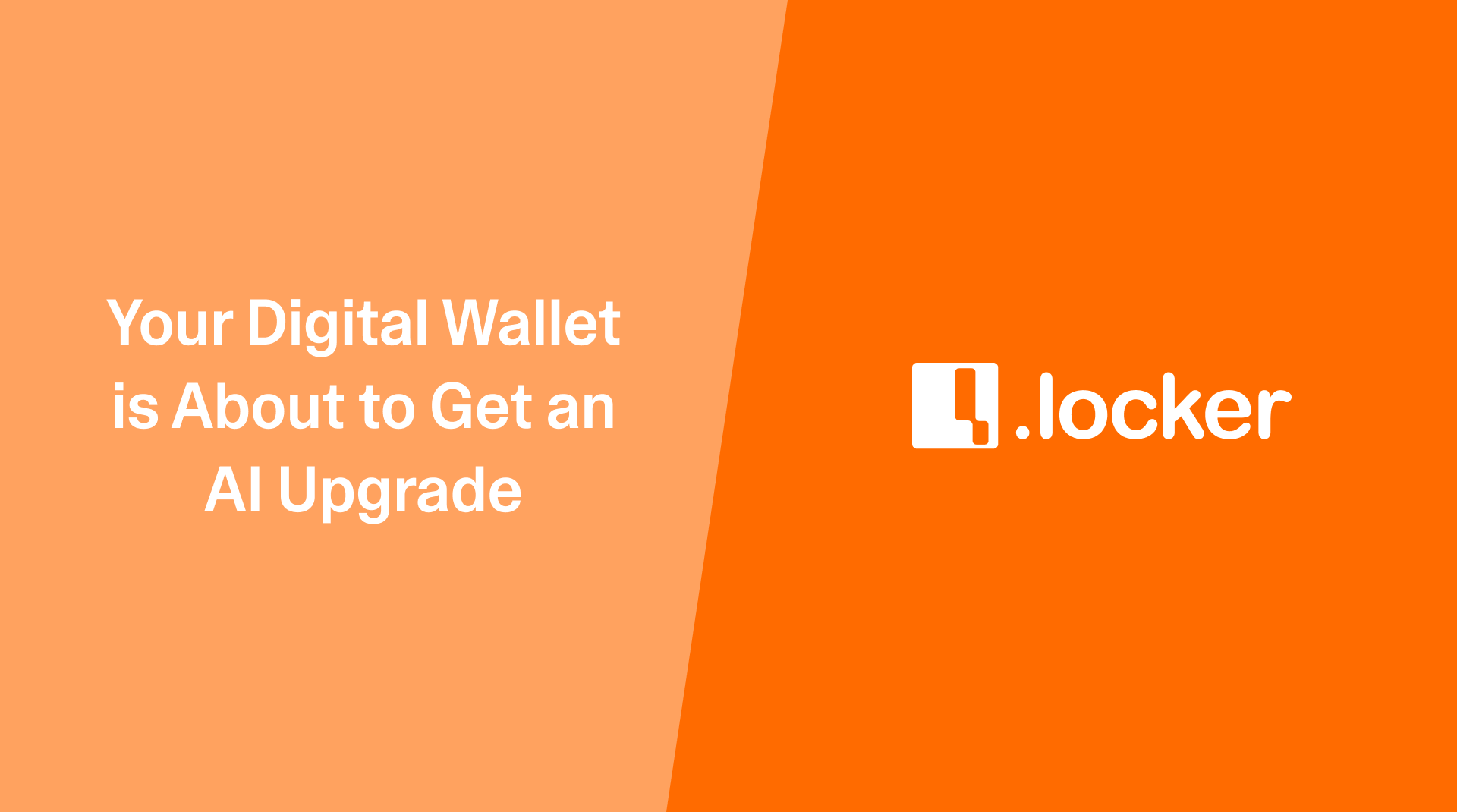The Future is Decentralized: How Web3 Digital Identities and AI are Reshaping the Internet

Thank you to Mou Mukherjee, Head of .locker Operations & Partnerships, for the below insights.
We’re standing at the edge of a major shift in the way the internet works. For decades, our online identities and data have been fragmented and controlled by centralized authorities. But that model is breaking down with the emergence of Web3. A new digital era powered by digital identities and decentralized AI is putting individuals back in control.
This isn’t just a technical upgrade. It’s a movement toward a more open, equitable, and intelligent internet. With Web3, users own their digital identities, assets, and data through blockchains and smart contracts, giving them sovereignty over what they create and share. Instead of relying on intermediaries to validate transactions, like a bank or government, Web3 uses cryptography and decentralized networks for verification. This reduces risk, fraud, and gatekeeping, which makes systems more resilient and transparent than ever before.
Web3 Digital Identities: The Foundation of a User-Centric Internet
Today, your online identity is fragmented. You have one profile for your bank, another for your social media, and countless others. None of them are truly yours. You are bound by the intermediary’s terms and conditions, and they control your personal data within their own systems. We have all been affected by a data breach or hack. Loss of control over your identity is an ongoing battle and you’re at even greater risk if someone else is handling your data.
Web3 changes that. By anchoring identity on the blockchain, users own and control their digital presence. A Web3 digital identity is portable, secure, and interoperable, giving individuals a single source of truth that travels across platforms. And your digital identity is extremely important on Web3. Every digital identity is attached to a digital wallet, and that’s where you store your digital assets (like NFTs or Bitcoin) and data. Web3 allows users to manage credentials, build a verifiable reputation that can be traced, and interact with decentralized systems without sacrificing privacy and control.
Decentralized AI: Intelligence Without Gatekeepers
Artificial intelligence has already transformed how we live and work, but most AI today is built and owned by a handful of corporations. AI corporations collect data in a silo; they only have access to user input and information that is freely available on the internet. That concentration of power limits transparency, introduces bias, and leaves individuals with little say in how their data is used. This is in direct conflict with Web3 where decentralization is a core principle.
Decentralized AI offers a different path. Instead of relying on a centralized server of data, decentralized AI distributes its model across blockchain networks and it crowdsources its data directly from individuals. Because Web3 inherently allows users to control their data, they can choose what they share with a decentralized AI model, allowing more privacy and control. Decentralized AI will pull data from all its consenting participants to analyze and learn. In return, users will be rewarded with a token, or reward, for their participation. Community-driven AI development is akin to decentralized autonomous organizations (DAOs) that allow individuals to have a say in how their community, organization, and blockchain network is managed.
By distributing models across blockchain-based networks, AI becomes more transparent, auditable, and accountable. Every blockchain transaction is recorded in hash code, creating a trail of activity that can’t be changed or altered. This makes it much easier to audit an AI model, its data sources, and its accuracy. Don’t worry, though- sensitive data is encrypted, keeping your digital identity safe.
Why Web3 Identities and AI Belong Together
When you combine digital identities with decentralized AI, something powerful happens. We unlock the dynamic capabilities of AI agents and smart contracts. Think of an AI agent as your own virtual assistant that can plan tasks and execute on them independently under your digital identity. This may seem futuristic and complicated, but AI agents have a place in everyday life.
Think of planning a dinner with colleagues in the same city. Everyone’s calendar looks different, there are multiple dietary preferences, and everyone is coming from a different neighborhood. Sounds like a nightmare to plan yourself… but not with an AI agent! An AI agent will analyze everyone’s availability, diets, and locations to find the best choice in your city. You can even send everyone a personalized invite with directions to the restaurant from their location. What happens behind the scenes in this scenario? Individuals have consented to sharing their data points. AI agents have collected data, analyzed it, and suggested an output. Smart contracts have connected all the pieces together so they automatically execute, including those personalized invites. And all of this lives on the blockchain, where data is decentralized and encrypted for your privacy.
The automatic exchange of information not only lowers the barriers to collecting data, but it also provides more accurate results because digital identities are authentic, traceable sources. Going back to the dinner example, your AI agent knows with confidence that your colleague Joe is allergic to shell fish because he chose to share that data point. It’s not some data point AI picked up on a random website to inform the decision- it’s true, verifiable information.
Industries Already Being Transformed
Planning a dinner is exciting, but the true use cases of decentralized AI and digital identities go far beyond a social event. The groundwork for use within healthcare, finance, education, business, and more is being laid today.
In healthcare, patients can share medical records with AI diagnostic tools securely, retaining full control over sensitive information. Imagine doctors identifying trends in real time to pinpoint a diagnosis.
In finance, decentralized finance (DeFi) platforms use AI-driven credit scoring, all powered by digital identities. This increases efficiency; bankers don’t need to sit down with stacks of your information to determine how much capital you qualify for.
In human resources, skills and credentials can be instantly verified, while AI systems can match individuals to opportunities with far greater accuracy.
As we become more familiar with decentralized AI, new standards and protocols for using digital identities with AI will emerge. Policymakers are starting to explore frameworks that balance innovation with protection. We won’t have all the answers overnight, but the direction is clear: an internet where individuals, not institutions, hold the keys to identity and intelligence.
The Internet Reclaimed
The convergence of Web3 identities and decentralized AI signals a future where users finally reclaim what’s theirs- their data, their reputation, their digital selves. .locker stands at the center of this transformation, bridging Web2 and Web3 and offering a practical way for individuals to step into this new era today. .locker is secured on the Bitcoin blockchain and integrated with the ENS resolver, meaning you can use a .locker digital identity on both Bitcoin and Ethereum.
The internet of tomorrow will be user-owned, transparent, and intelligent. The question isn’t whether it’s coming, it’s how fast you’ll be ready to take part. Now is the time to explore digital wallets, AI-powered dApps, and ecosystems that put you in control. The future is decentralized and it starts with your .locker digital identity.

Navigating Web3 Brand Protection in the Era of Uncertainty: A Conversation with Shane Layman of Markmonitor Group
An industry leader in corporate domain management, Shane Layman works closely with some of the world’s most recognizable corporations to help protect and manage their brand names online. This positions him at a unique crossroads where domain name governance and policy, brand protection, and end user trends collide.
January 15, 2026





